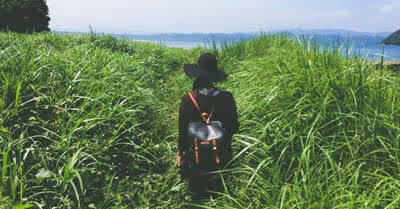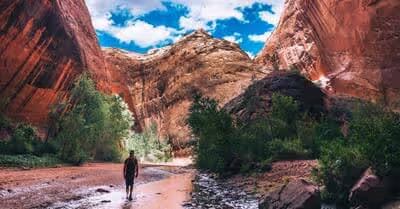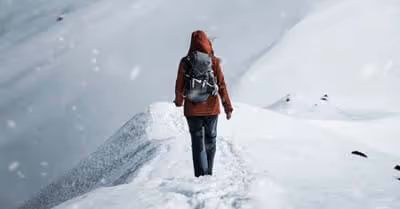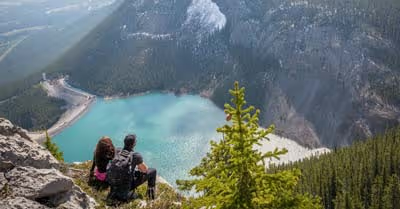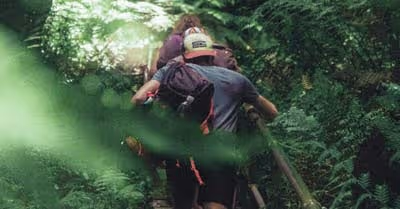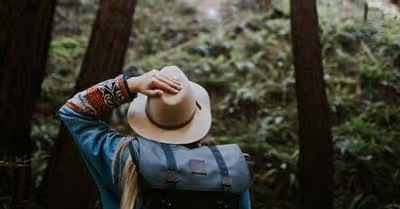Table of Contents
What is good for drinking on a hike
Water
Water is the real winner when it comes to the best drink. It is very effective at keeping you feeling good and providing your body with the fluid it needs. Water can be collected on the trail from running streams and rivers, meaning you can replenish your supply on the hike. If you are going to be on a long hike, bringing a water filtration device could be worth it. Regardless of the length of your hike, bring water. If you only elect to bring one type of drink, it has to be water. Especially on hot days.
Fruit Juice
Fruit juice is a great bonus when used in moderation. The naturally occurring sugars in fruit juices can help you keep going when things get tough. Fruit juice should not be used as your primary source of fluids though, as too much fruit juice can be as bad for you as drinking lots of soda. The best bet is choosing natural fruit juices that arent sweetened. Avoid long-life fruit juices as those are normally blended with extra sugar to help them keep longer. If you can make your own fruit juice, from fresh-squeezed oranges, that is even better for you. And even more delicious.
Sports drinks
Sports drinks such as Gatorade are a fantastic supplement to water. They can help keep your body’s electrolyte levels at a healthy balance. These electrolytes are responsible for controlling many of your body’s functions. Such as contraction of muscles and nerve impulses. Lots of intense exercising will cause you to lose these electrolytes and you will gradually become more tired. By drinking sports drinks, you will help replenish these electrolytes.
Coffee
Coffee can be a good choice of drink when used in moderation. A small amount of caffeine can be a great boost to your energy levels on your hike. But too much can cause you to crash, and get headaches or other irritations. Coffee is mostly water, so it is a good way of getting more water into your system. One cup of coffee a day when hiking is a pretty good amount, you will get all the benefits without the drawbacks.
Meal replacements
When finding time to eat your meals on the trail, it can be much easier to just drink them. Bringing bone broth, thin soups, or homemade vegetable stocks can be a great source of calories on your hike. These meals are very easily digested, as opposed to solid food. It is also so much easier to bring these foods in a flask or thermos ready-made. You cut out preparation time on the trail, there is also no packaging to look after. The added bonus is these foods contain large amounts of water, meaning you bring on even more fluids during your breaks when you eat. If you are hiking through the cold, a nice warm soup or broth will be wonderful
What NOT to drink on a hike
Alcohol
Alcohol is never good when mixed with sports or exercise. Apart from the fact hiking under the influence of alcohol is dangerous, it can be extremely unhealthy. Alcohol is incredibly dehydrating, ever notice you need to use the restroom a lot when you drink? On a hike it is hard enough to retain your fluids, adding alcohol to the mix just makes things worse.
Soda / fizzy drinks
Soda and fizzy drinks may look refreshing, but they are incredibly dehydrating. The extremely high sugar levels that make up these drinks means that you are not actually bringing in all that much useful water. So when you sweat, those fluids arent replaced. You would need to drink several bottles of soda for each bottle of water in order to get the same amount of fluid intake. It isn’t sustainable to bring that much soda with you, and even if it was that much sugar is very bad for you. The high sugar levels can lead to tiredness once your body has used up all the glucose. When on the trail you should be drinking things to make you feel better, with more energy. Not drinking things to make you feel more tired. Hiking is tiring enough already.
Energy drinks
Energy drinks are very similar to soda, in that it is bad because of all the sugar. But energy drinks such as Redbull, Monster Energy, etc are even worse. They are rammed full of caffeine. Obviously, the caffeine is to give you energy, but it has a major drawback. Caffeine is a diuretic, like alcohol, meaning the more you drink the more you need to urinate. So this means drinking energy drinks instead of water makes you lose the fluids you already have much more quickly, but also doesn’t replace them. It is the worst of both worlds.
How often to drink
Before
Before you begin your hike it is ideal to set off with a good level of hydration. A few cups of water, a cup of orange juice, and a small sports drink is a great starting point. The more hydrated you are now, the less you will need to bring on the hike. Carrying huge quantities of water and other beverages can be exhausting. Water is not light. It is possible that on a long hike it will be worthwhile to invest in some salt tablets. Once you take one of these tablets the added salt will help your body hold on to its water. You will be less likely to sweat or urinate it out. This is only necessary on long hikes though.
During
During the hike, you will want to stay as hydrated as possible. To do this you need to be drinking water frequently in small amounts. It is far better to drink one 16oz bottle of water an hour, split into thirds than it is to drink it once every hour. The worst thing you can do is just drink huge quantities of water every 5 or so hours. You will get very dehydrated this way. When you drink so much at once you will very quickly need to urinate, but it can also make you feel very sick and bloated. Slow and steady with the water is best, with a sports drink every few hours.
After
After you have finished your hike you can take it a bit easier on the hydration side of things. Keep drinking water gradually for the next day to keep your fluid levels up. It is also ideal to drink an entire sports drink at the end of the hike to replenish all of your bodies now depleted electrolytes. Your body should finish the hike in the same condition it started. A good way of managing this is weighing yourself before and after the hike. If your weight is the same you have done a good job, but if you have lost a lot of weight this is a bad sign. It is impossible to burn fat that quickly. So what has happened, is your body has lost all of its water weight. Meaning you are very dehydrated. Once you drink enough water, fruit juice, and sports drinks your body will regain its water weight.
Beware of dehydration
There are a plethora of symptoms of dehydration. You should watch out for them all to make sure you are getting enough water. If you do notice you are very dehydrated immediately stop for a small break and take on lots of water. The symptoms you should watch out for are as follows:
Weakness: When we become dehydrated we lose a lot of the strength in our muscles, the lack of electrolytes and general just grogginess from lack of water can be a real problem. Someone who is severely dehydrated may not even be strong enough to walk short distances, let alone finish your hike.
Tiredness: Just like weakness, tiredness is a real problem. We will very quickly start to become tired or even lethargic without the proper hydration levels. This can lead to sickness and also fainting. Which is incredibly dangerous when hiking on the trail, especially up or down steep inclines.
Cramps: When your body doesn’t get enough electrolytes and becomes dehydrated, you lose the ability to properly regulate your muscles and nervous system. As mentioned above, your electrolytes control your muscles contractions. This means it can cause them to contract too hard and cause severe pain from cramping. That is why sports drinks are so important to have as a supplement to your water intake.
Conclusion
Hiking is so much fun and is completely safe so long as you respect nature, the trail, and your own body. If you treat your body correctly, drink enough fluids, and avoid the wrong kinds of drinks you will be just fine.
Hopefully, this article has given you enough information to feel confident you can handle your next hike. Remember, your fluid intake before and after the hike is of almost equal importance. Take care of your body, you only get one.
Good luck on your next hike!
Recent Articles



